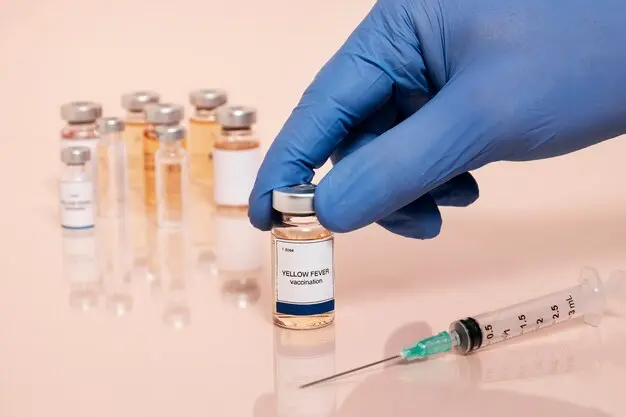If you’re planning an international trip—especially to Africa or South America—you’ve likely come across the term Yellow Fever Certificate. For many travelers, this document can be confusing. Do you really need it for your trip? Is it just another travel immunization requirement, or does it depend on your destination?
Since regulations vary by country—and sometimes even by layover—understanding the yellow fever vaccine and its certification is essential for hassle-free travel.
What Is a Yellow Fever Certificate?
A Yellow Fever Certificate, officially called the International Certificate of Vaccination or Prophylaxis (ICVP), is proof that you’ve received the yellow fever vaccine. Yellow fever is a mosquito-borne viral disease found in parts of Africa and South America, and this certificate ensures travelers are protected while also helping prevent the spread of the virus across borders.
The World Health Organization (WHO) regulates this certificate, making it a recognized international standard. Without it, entry to certain countries may be denied—even if yellow fever is not currently widespread in that region. For many international travelers, the yellow fever vaccine is one of the most important travel vaccines to plan for before departure.
When Do You Need a Yellow Fever Certificate?
Not every traveler needs the certificate, but some situations make it mandatory:
- Countries Requiring Proof at Entry – Many African and South American nations require proof of yellow fever vaccination upon arrival.
- Transit Country Rules – Even if yellow fever is not a risk in your final destination, some countries require the certificate if you’re transiting through an affected region. For example, flying through certain African airports may trigger this requirement.
- Certificate Validity – Once received, the certificate is valid for life in most cases, though it takes 10 days after vaccination before it becomes effective. That means you need to plan ahead to avoid travel disruptions.
Who Should Get the Yellow Fever Vaccine?
The yellow fever vaccine is strongly recommended if you are:
- Traveling to Africa or South America, where yellow fever is common.
- Visiting areas with a known risk of yellow fever outbreaks.
- Entering a country that requires the certificate for entry or transit.
However, not everyone should receive the vaccine. Infants under 9 months, people with severe allergies to vaccine ingredients, and individuals with certain health conditions (such as weakened immune systems) may be exempt. Always check with a certified travel clinic before making the decision.
Yellow Fever Vaccine: What to Expect
The yellow fever vaccine is a single-dose injection. To be effective for travel purposes, you must receive it at least 10 days before departure.
What you should know:
- Most people develop lifelong immunity after just one dose.
- Mild side effects like soreness, low fever, or headache may occur.
- Rarely, more serious side effects can appear, which is why consultation with a travel health specialist is important.
How to Get a Yellow Fever Certificate
You cannot get the certificate at just any clinic. Only approved travel vaccination centers can administer the vaccine and issue the certificate.
Here’s the process:
- Visit a licensed travel clinic.
- Get your yellow fever vaccine.
- Receive your stamped and signed certificate, valid for international travel.
Costs vary depending on your location, and insurance coverage may differ, so it’s worth checking in advance.
Frequently Asked Questions
Is one dose valid for life?
Yes. WHO guidelines confirm that a single dose offers lifelong protection for most travelers.
Can you travel without the certificate?
If the destination requires it, you risk being denied entry or quarantined upon arrival.
What if you lose your certificate?
The clinic where you were vaccinated can usually issue a replacement, but this may take time, so plan ahead.
Other Travel Vaccines You May Need
While the yellow fever vaccine may be the most well-known, other travel vaccines are often recommended depending on your destination. These include:
- Typhoid
- Hepatitis A & B
- Meningitis
- Rabies (for extended stays in rural areas)
Planning these together with your yellow fever vaccine helps ensure you’re fully protected before your trip.
Be Ready, Be Protected
The yellow fever certificate is more than just a travel document it’s a key part of global health security and your personal safety. Whether you’re heading to Africa, South America, or passing through a transit country with strict entry rules, it’s always better to check requirements well in advance.
Before your next big trip, consult a certified travel clinic to confirm if you need the yellow fever vaccine or other travel vaccines. Preparing early ensures a smooth journey and peace of mind.
